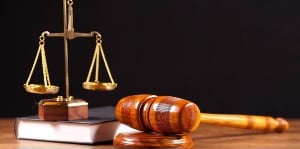
In a development as rare as it is consequential, Ghana’s Chief Justice, Her Ladyship Gertrude Torkornoo, has sought redress from the ECOWAS Court, alleging a breach of her right to a fair hearing in the ongoing process to remove her from office. At the heart of this unprecedented move lies a fundamental civic question: If due process falters at the judiciary’s apex, who safeguards the integrity of justice for the rest of us?
This is not merely a legal squabble—it is a constitutional moment. And how it is resolved may well recalibrate the delicate balance between institutional accountability and political influence.
🧩 The Stakes Beneath the Headlines
The Chief Justice’s petition identifies procedural violations that strike at the core of constitutionalism:
Suspension without receiving the prima facie report justifying her removal; An investigative process she contends was neither impartial nor independent; Alleged infringements on her dignity, working conditions, and legal representation rights.
These are not just technicalities—they are litmus tests of Ghana’s democratic health.
When power can be wielded without transparency or recourse, every citizen, not just the high-ranking, becomes vulnerable to unchecked authority.
🏛️ Institutional Independence Isn’t a Symbol—It’s a System
This case presents an inflection point for the judiciary’s autonomy. If Ghana’s judicial leadership can be sanctioned through opaque processes, it sets a dangerous precedent: one where institutional oversight may be deployed as a weapon rather than a safeguard.
True judicial independence demands that accountability mechanisms:
Are transparent, Observe the tenets of natural justice, and – Remain insulated from political motivations.
Without this, Ghana risks a slide toward selective justice—where the rules shift depending on who holds power.
🔍 Beyond the Courtroom: Precedent, Perception, and Public Trust
The implications of this legal contest reach far beyond legal circles:
If the ECOWAS Court upholds her petition, it may compel Ghana to overhaul internal accountability procedures and recommit to constitutional protections. If dismissed without strong procedural justification, it could weaken regional safeguards and embolden further erosions of due process.
Either outcome will reverberate across the judiciary, legal education, and regional democratic norms.
This isn’t just an isolated dispute. It’s a civic mirror reflecting whether Ghana’s commitment to the rule of law is substantive—or selectively applied.
🔧 Recommendations for Strengthening Judicial Accountability
To restore public confidence and reinforce institutional legitimacy, the following actions are imperative:
1. Codify Transparent Disciplinary Processes
Parliament and the Judicial Council should establish publicly accessible disciplinary protocols that guarantee fair hearing, legal representation, and timely disclosure of evidence.
2. Constitute Independent Review Panels
Investigative bodies involving high-ranking judicial officers must meet thresholds of impartiality, including representation from outside the executive/judicial hierarchy.
3. Mandate Judicial Performance Reviews
Create routine, apolitical systems for evaluating judicial conduct, separate from disciplinary proceedings, to address concerns before they escalate.
4. Strengthen Civic Oversight through Legal Education
Legal aid bodies and civic platforms should amplify public understanding of judicial rights, independence, and the responsibilities of officeholders.
5. Enhance Regional Legal Cooperation
Ghana should lead efforts within ECOWAS to bolster the enforceability of decisions from the Community Court and close jurisdictional gaps that weaken supranational remedies.
🧭 Final Word: Democracy Is Defined by How We Treat the Powerful
When the gavel trembles in the Chief Justice’s hand, it’s not just her fate that hangs in the balance. It is the principle that no one—not even the highest judge—should be subjected to arbitrary justice. And if she, at the system’s summit, alleges such breach, it’s a civic call to vigilance for us all.
What we defend today is not one officeholder’s comfort, but the very architecture of rule-bound governance. Ghana must meet this test—not with silence or sentiment—but with institutional clarity, moral courage, and a resolute commitment to due process.
Retired Senior Citizen
Teshie-Nungua
[email protected]


